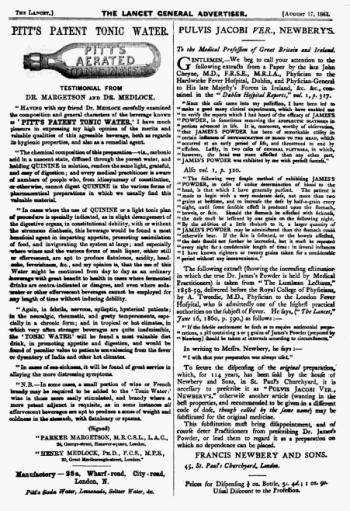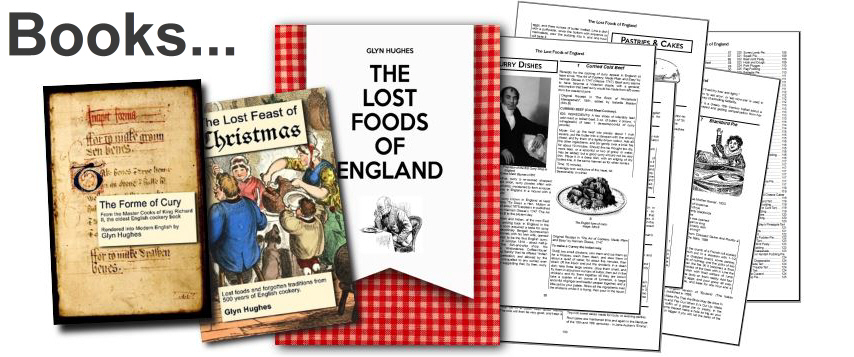

|
 (or Indian Tonic Water Uncoloured, carbonated water with quinine and, usually, sweeteners. Generally accepted as having been invented around 1850 as a relatively palatable way of taking quinine to give protection against malaria in the colonies. See also Gin and Tonic 2015 Although the phrase ‘tonic water’ is known from at least the 1790’s, it generally refers to any water claimed to be invigorating. The modern form of commercial quinine-flavoured tonic water is first known in the 1860’s from advertisements in the medical journal ‘The Lancet’ by the ‘Pitts Aerated Water Company’ of Wharf Rd in London. Pitts claimed that; “The idea of combining a tonic like quinine with an aerated water … is a pleasant refreshing tonic and invigorating beverage, strengthening to the digestive organs.”  The Lancet, 1862 Quinine is extracted from the bark of the South American cinchona tree, and has been used since at least the 17th Century to prevent or alleviate the symptoms of malaria. The prophylactic dose is around 300mg per day, but as a Gin and Tonic contains only about 15mg, drinking enough to keep you protected is likely to leave malaria as the least of your problems. The quinine makes Tonic Water fluoresce bright blue under ultra-violet light. Tonic Water is specifically exempted from the part of the Food Labelling Regulations of 1996 prohibiting the use of the word ‘tonic’ on any product which doesn’t have known therapeutic properties. The most famous brand is produced by the company founded in Geneva in 1783 by Jacob Schweppe. He moved the business to London’s Drury Lane and built a reputation on waters for kidney and bladder complaints, indigestion and gout. By 1831 Schweppes was the Supplier of Soda and Mineral Waters to the Royal Household and in 1851 won the contract to supply ‘Temperance’ beverages at the Great Exhibition. Tonic Water, along with Ginger Ale, was introduced in 1870.  |
|
MORE FROM Foods of England... Cookbooks ● Diary ● Index ● Magic Menu ● Random ● Really English? ● Timeline ● Donate ● Royalty ● English Service ● Food Map of England ● Lost Foods ● Accompaniments ● Biscuits ● Breads ● Cakes and Scones ● Cheeses ● Classic Meals ● Curry Dishes ● Dairy ● Drinks ● Egg Dishes ● Fish ● Fruit ● Fruits & Vegetables ● Game & Offal ● Meat & Meat Dishes ● Pastries and Pies ● Pot Meals ● Poultry ● Preserves & Jams ● Puddings & Sweets ● Sauces and Spicery ● Sausages ● Scones ● Soups ● Sweets and Toffee ● About ... ● Bookshop ● Email: [email protected] COPYRIGHT and ALL RIGHTS RESERVED: © Glyn Hughes 2022 BUILT WITH WHIMBERRY |